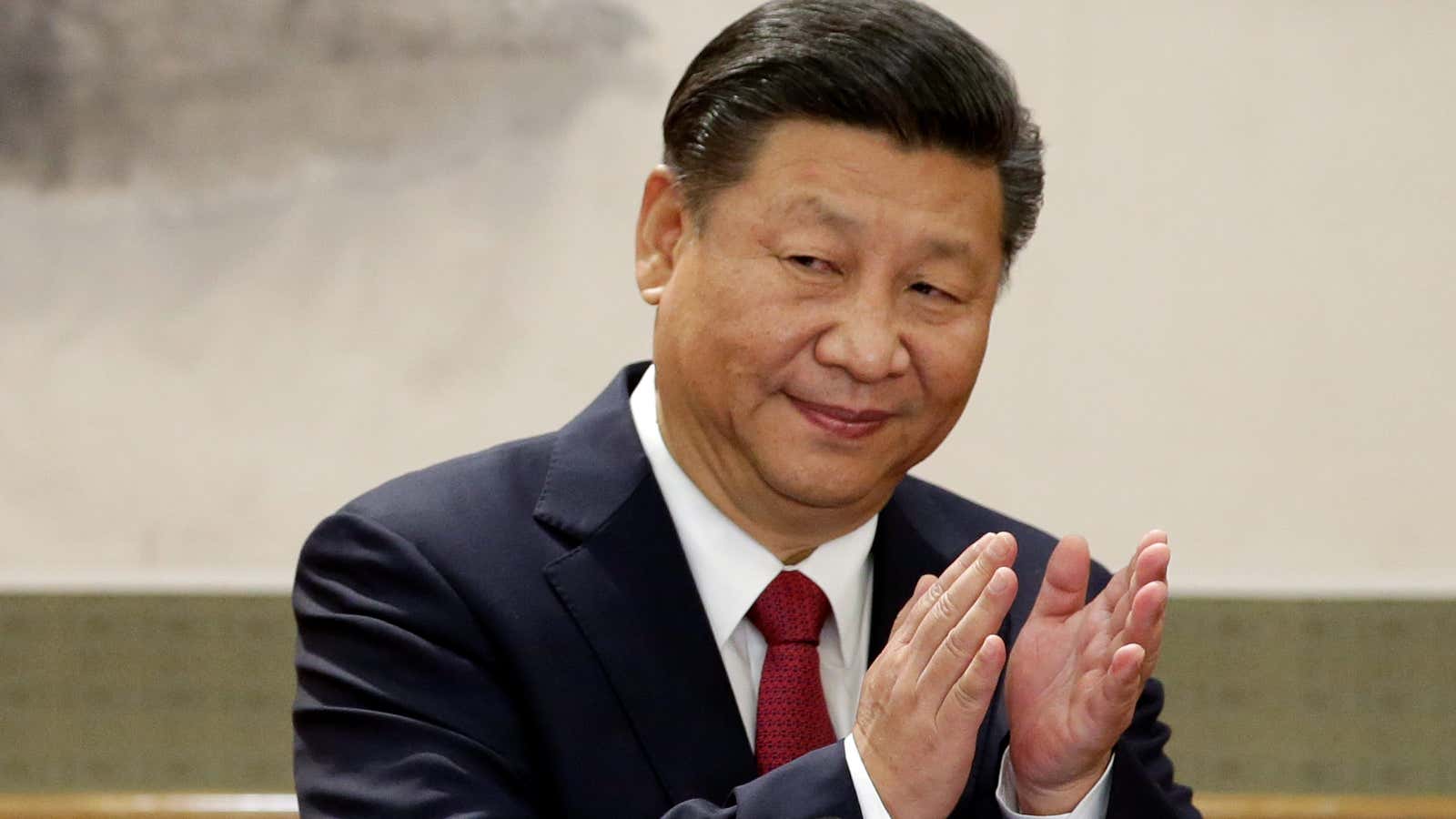Xi Jinping, the leader of China, has a multitude of fancy-sounding titles. He is the General Secretary of the Communist Party, the Chairman of the Central Military Commission, and the “core leader.” The list goes on.
But one title he cannot claim is “president,” the term usually used to describe him in English. This translation reveals the difference in the two different images China wants to convey—one at home, and another abroad.
In Mandarin, there is a word for “president.” That word is 总统, pronounced zongtong. In the media, and in everyday speech, Donald Trump is referred to as America’s zongtong. Emmanuel Macron is the zongtong of France. Xi Jinping is not, however, the zongtong of China.
Rather, his official title as head of state is 国家主席 (guojia zhuxi), or “state chairman.” (That’s “state” as in “nation-state.”) That second word zhuxi, or “chairperson,” is used in other contexts the same way its English counterpart is. Jack Ma, the founder of Alibaba, is the zhuxi of that company’s board, for example. So why does one news report after another call Xi the “president” of China?
As with many things in modern China, the term has a complicated political history. The office of guojia zhuxi was established in 1954. It was originally held by Mao Zedong, and was in fact first officially translated into English as “state chairman.” A few years later, in 1959, the position was given to Liu Shaoqi, an important early member of the Communist Party and at this time Mao’s chosen successor. But both Liu and guojia zhuxi fell out of favor with Mao and were among the many victims of the Cultural Revolution. Mao monopolized power by arresting and vilifying Liu, and in 1975, pushing through a new constitution that emphasized the party’s rule over the state, eliminating the office of zhuxi.
It was in 1982 that yet another constitution was adopted reinstating guojia zhuxi, this time using the official English translation of “president.” The state-run China Daily explains (link in Chinese) that the translation of “president” is used “because in English the head of state of a republic is referred to as ‘president’.”
China is technically a multi-party republic (though only the Communist Party of China is allowed to rule). The English term “president” emphasizes that fact for the outside world. “State chairman,” in contrast, would evoke authoritarianism.
But at home in China, Xi is referred to variously as zhuxi, or zongshuji (party secretary), or shouzhang (leader), emphasizing not republican representation but authority. On the other hand, the leaders of fellow Communist states Cuba, Vietnam and Laos are referred to in China as zongtongs. The emphasis in China is not on republican representation, but on the party.
Even in China, the term “chairman” can be sensitive when it evokes Chairman Mao. Mao was chairman of not only the state but the Communist Party, a position that has since been abolished in part to prevent another cult of personality from forming. But Xi has shown himself to be willing to break such taboos. Last week, he enshrined his own name in the country’s constitution. And earlier this year, he broke with tradition by telling troops to call him not shouzhang, but zhuxi.
It might be more accurate, therefore, for us in the English-speaking world to start calling him “chairman.”
